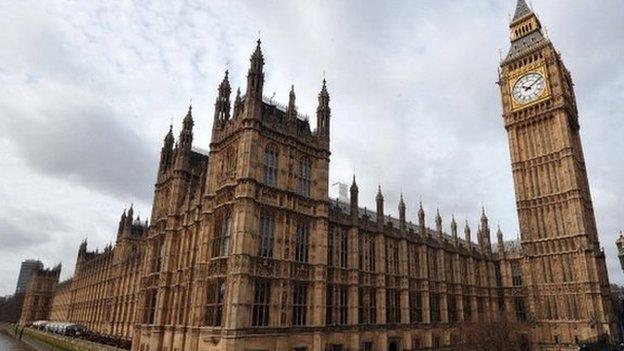Local elections: What happened and what are they?
- Published
- comments
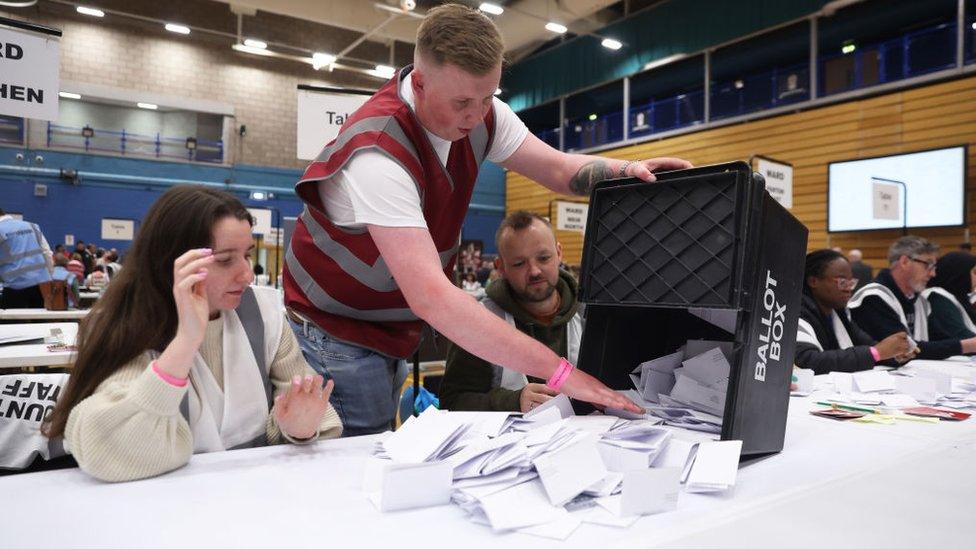
The election on 4 May covered 230 councils in England
Local elections took place across England on 4 May, where adults could decide which councillors will represent them in their towns and cities.
Some areas - Bedford, Leicester, Mansfield and Middlesbrough - were also voting for who would be their mayor.
Northern Ireland will be holding similar elections on 18 May, but there won't be any taking place in London, Scotland or Wales.
The vote closed at 10pm on Thursday, with the results being announced throughout Friday as votes are counted.
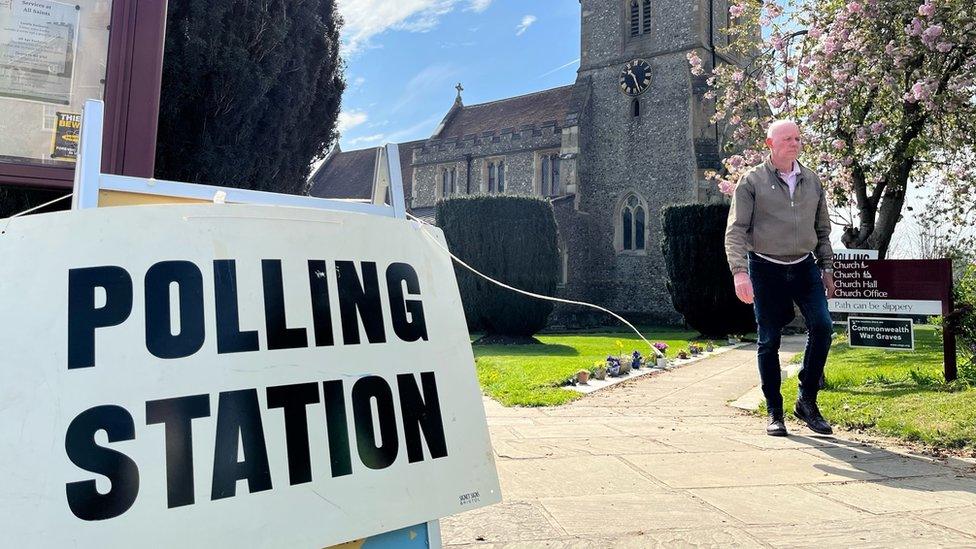
All voters had to bring a form of photo ID with them
This year was a little different, as it was the first time that adults were asked to bring photo ID with them to vote, such as a passport or a driver's licence.
This will also apply to future general elections.
The government says the new rules will help prevent voter fraud but critics claim the changes make it harder for some people to vote in elections.
The Electoral Commission said enforced photo ID meant some people were "regrettably unable to vote".
How did the parties do in the local elections?
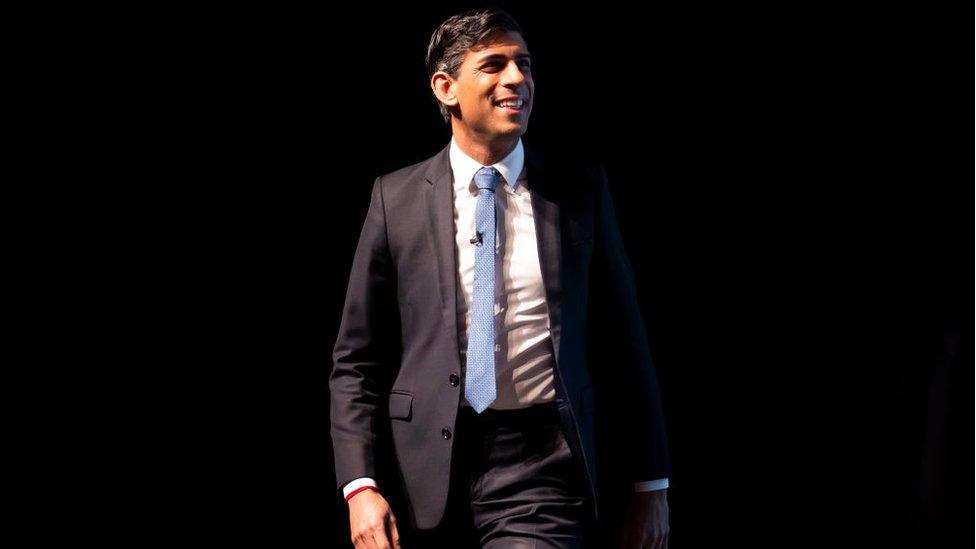
Rishi Sunak said that despite their losses being "disappointing", they're still making progress in key general election battleground areas
Prime Minister Rishi Sunak said there had been some "disappointing" results for the Conservative party, the political party currently in government.
They've lost more than 500 seats so far, losing more than 20 councils overall.
Labour on the other hand have gained key councils such as Plymouth, Stoke-on-Trent and Medway, which are all areas they specifically targeted.
Other parties have also done well - the Lib Dems, Greens, and independent councillors have all increased the amount of seats they have on local councils.
It's thought that this reflects how unhappy some people are with the current cost of living crisis, and with the various political scandals that have taken place over the last year.
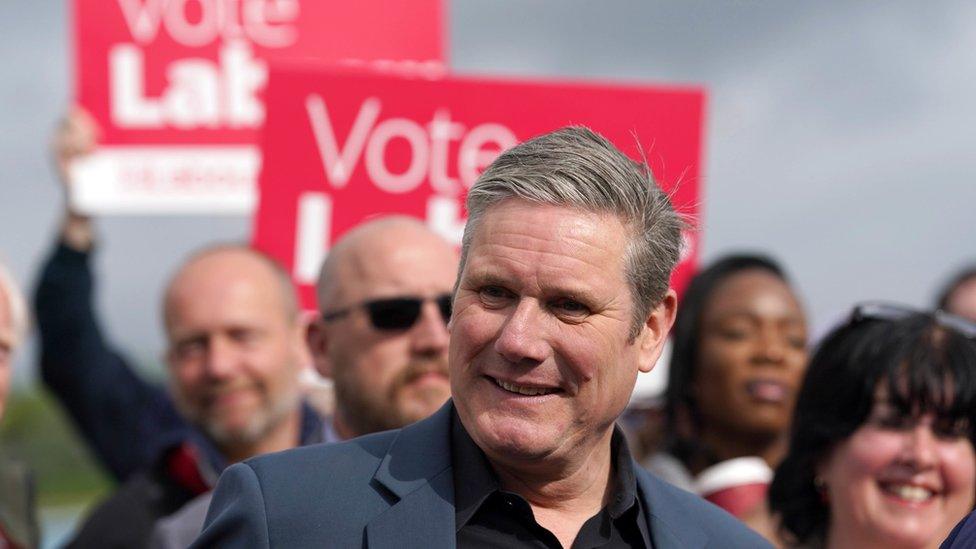
Keir Starmer, the leader of the Labour party, is hopeful last night's results mean they'll do well at the next general election
Labour says that the results show it is on track to do well in the next general election, which doesn't have a date yet, but will happen in January 2025 at the very latest.
Prime Minister Rishi Sunak said: "It's always disappointing to lose hard-working Conservative councillors, they're friends, they're colleagues and I'm so grateful to them for everything they've done.
"But what I am going to carry on doing is delivering on the people's priorities - halving inflation, growing the economy, reducing debt, cutting waiting lists and stopping the boats."
What is a local election?
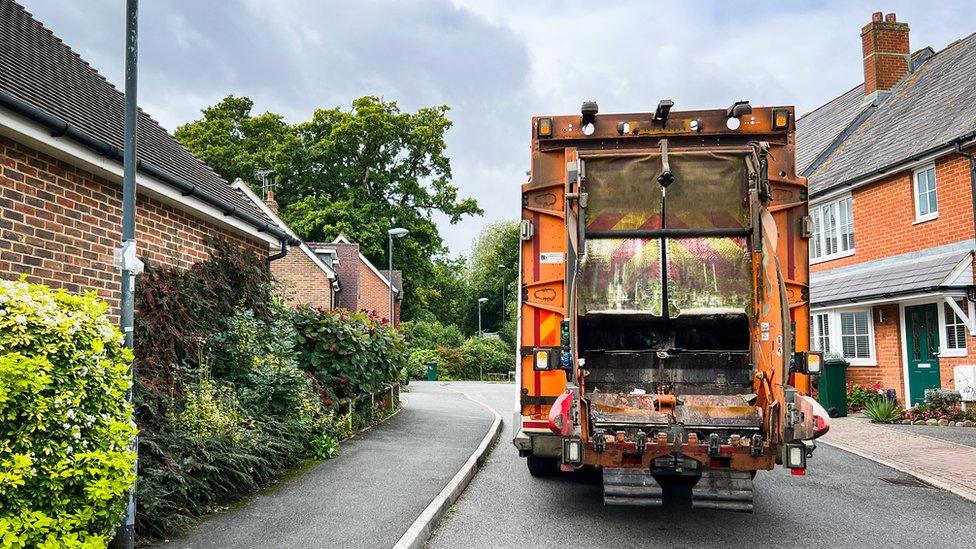
How often your bins get collected is decided by your local council
Local elections give adults the chance to decide who will make decisions on their behalf in their communities.
These decision-makers are called councillors, and they're responsible for how local services are run, such as bin collections, public transport and local education.
That's why votes like these are important - choosing who represents your interests in the area means having a say in what happens there.
There are several different types of local elections in the UK. That's because the way your local council is organised depends on where you live.
How does voting work?
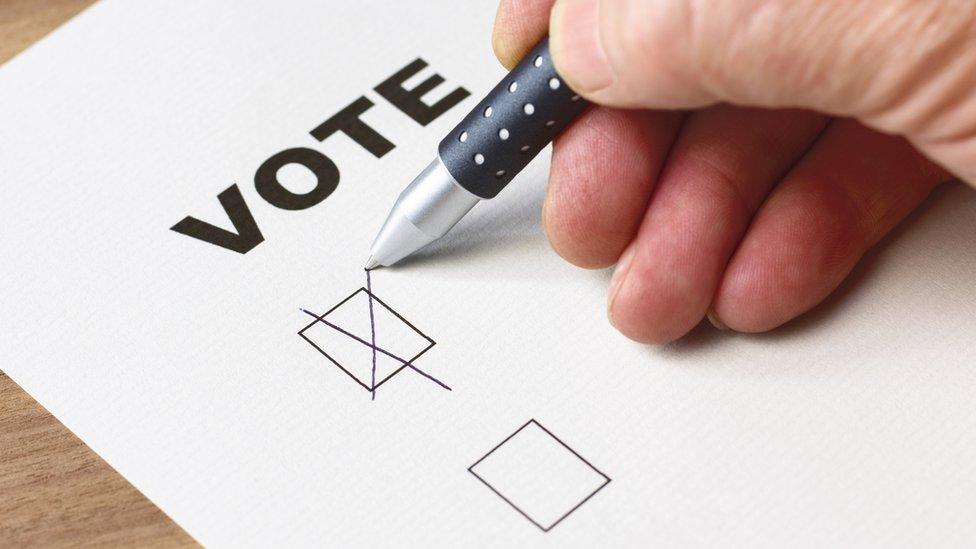
If you put anything other than a cross on your ballot paper, it may not be counted
People who want to be councillors put their names forward, and are listed on a ballot paper, along with the party they represent. If they're not aligned with any party, they will be listed as an independent.
Adults then go to their local polling station, which is a building in the community where volunteers collect their votes - even your school could be one!
They put a cross next to who they'd like to vote for, and hand their ballot paper in.
They might be asked to vote for more than one candidate, depending on where they live.
For example, in Scotland and Northern Ireland, voters are asked to rank the candidates in order of preference.
How are they different to general elections?
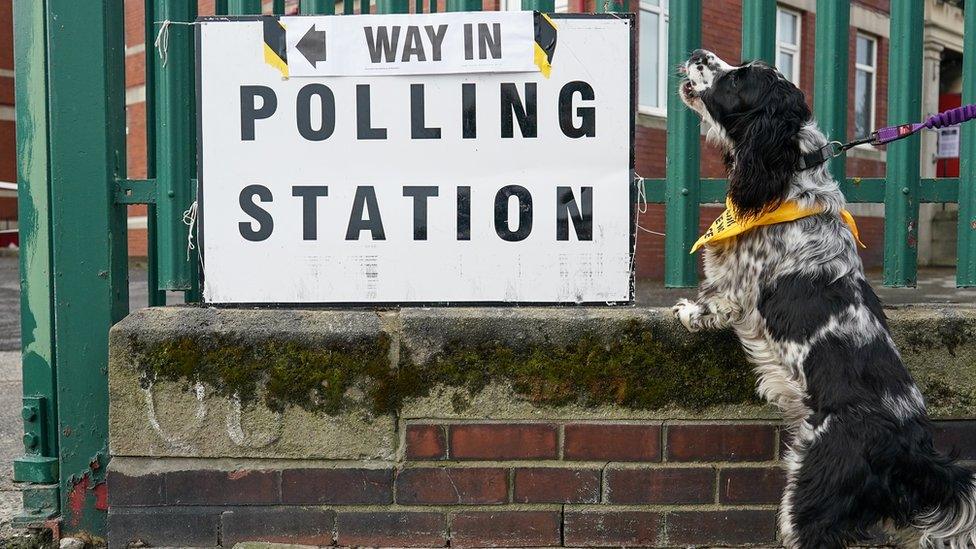
It's become a bit of a tradition that people share snaps of their dogs outside polling stations on elections days
The crucial difference between local and general elections lies in the word 'local'.
At a general election, adults choose our members of Parliament on a national level, and these people make decisions that affect the whole UK.
Whereas at local elections, the councillors make decisions that affect the very specific area they represent.
There are different types of councils that affect different types of things, too.
Some of the different types of local government in the UK include:
County council
District council
Borough council
Parish council
Town council
Unitary authority
Community council
Metropolitan borough
London borough
Directly elected mayors
They all work slightly differently. For example, if you live in Scotland or Wales, you will have a unitary authority. There are also unitary authorities in some medium-sized towns and cities in England. These councils also provide all local services.
Whereas a parish council looks after a more limited amount of services, such as public toilets, bins, public parks and war memorials.
Who can vote?
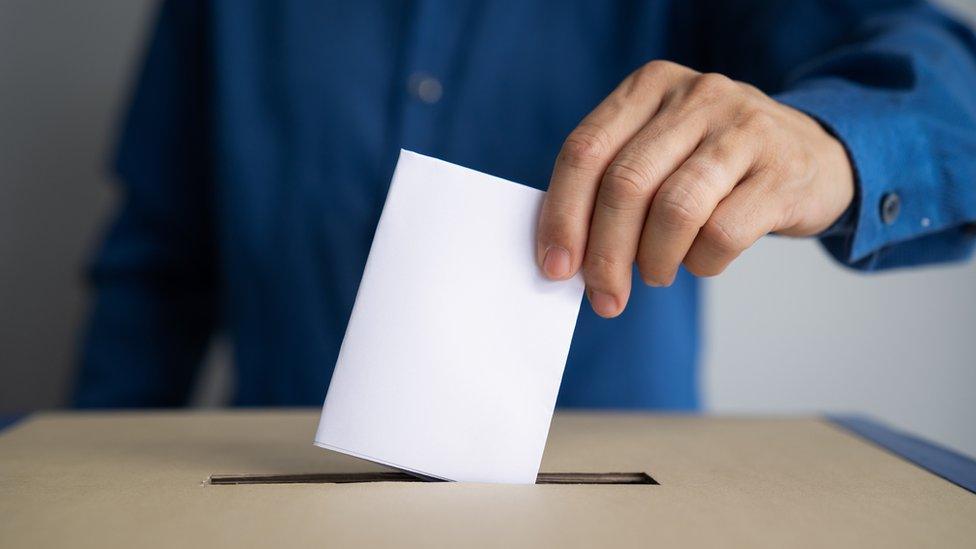
Ballot papers are collected in ballot boxes, which are then taken away to be counted
To vote in a local government election you must:
Be registered to vote
In most of the UK, be 18 years old or over on the day of the election - the age is 16 or over in Scotland
Be a British, Irish, Commonwealth or EU citizen
Be registered at an address in the area in which you want to vote
Not be legally excluded from voting - for example, convicted criminals in prison may not be able to vote, depending on their offence
And for the first time, you must now also bring photo ID with you.
- Published13 November 2019
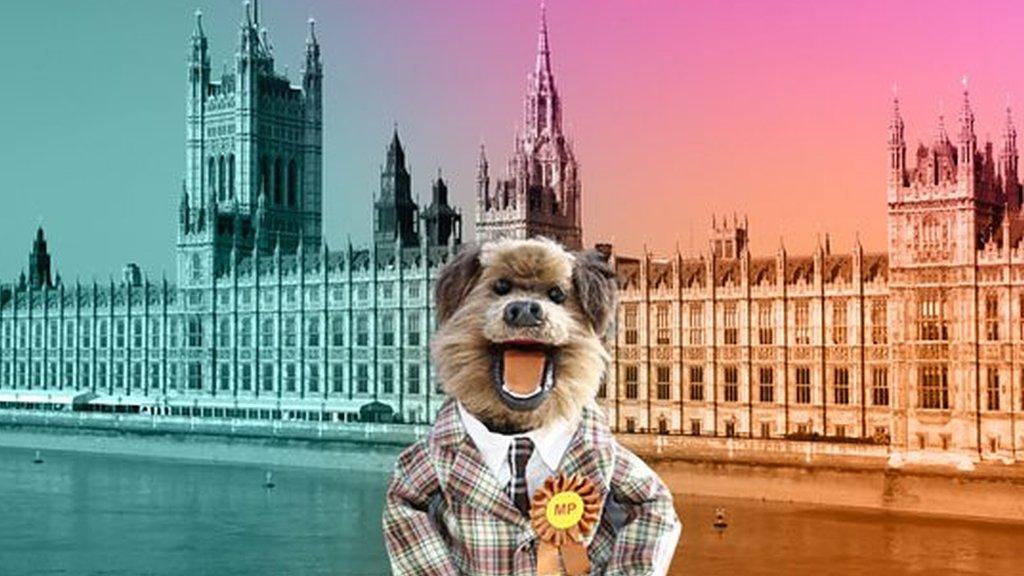
- Published27 October 2023
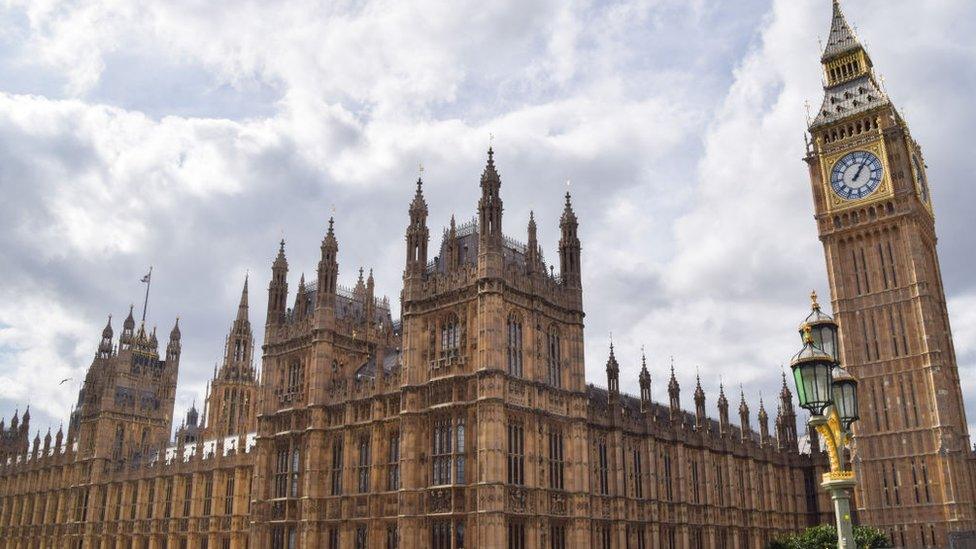
- Published20 January 2015
